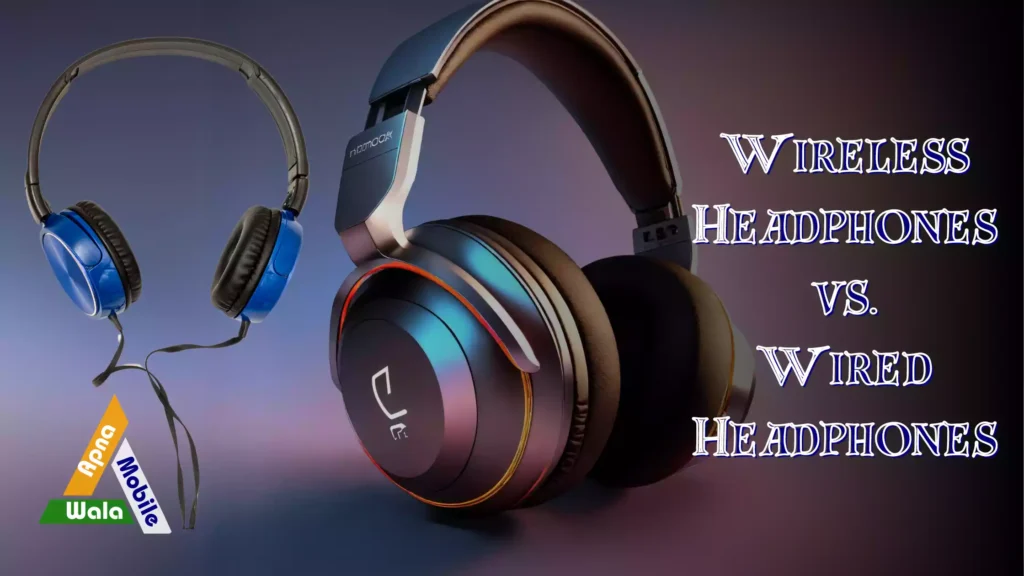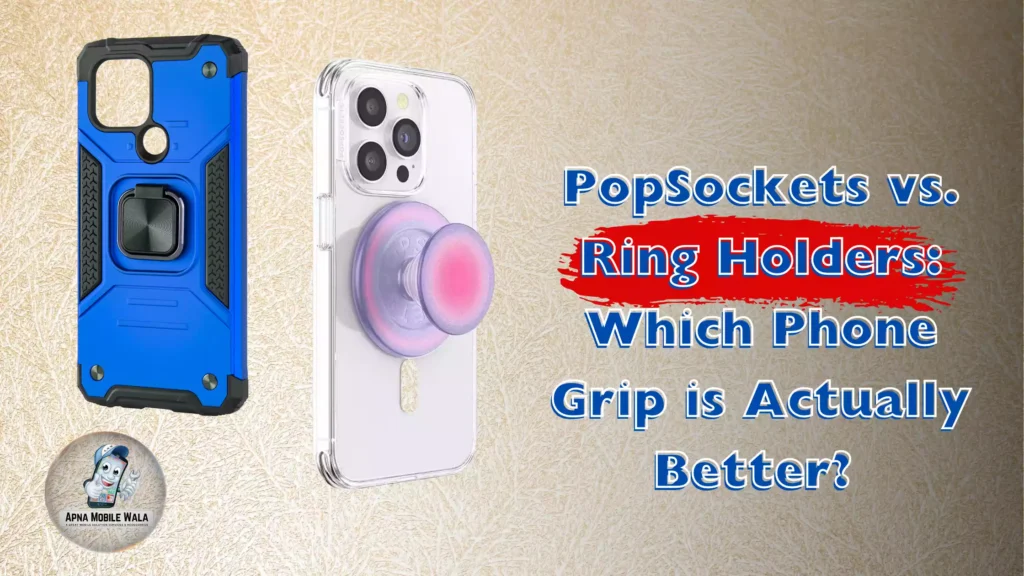Choosing between wireless and wired headphones can be a tough decision. Both offer distinct advantages and cater to different needs, whether you’re a casual listener, a fitness enthusiast, or an audiophile. In this blog, we’ll dive deep into the debate and help you decide based on sound quality, convenience, cost, and durability.
1. Overview of Wireless and Wired Headphones
Before we dive into the specifics, let’s understand what differentiates wireless headphones from their wired counterparts.
Wired Headphones:
Wired headphones connect to your device using a cable and a 3.5mm headphone jack or a USB-C/Lightning port. The audio signal is transmitted directly through the wire, generally offering better sound fidelity.
Pros:
- No need for batteries or charging.
- Consistently high sound quality.
- Lower price point, especially for high-end sound quality.
Cons:
- Limited mobility due to cables.
- Potential for tangling and wire damage.
Wireless Headphones:
Wireless headphones use Bluetooth or RF (Radio Frequency) technology to connect to your devices without a physical cable. These are ideal for on-the-go users who prioritize convenience and mobility.
Pros:
- No cables, offering more freedom of movement.
- Often comes with additional features like noise-cancelling, touch controls, or built-in voice assistants.
- Ideal for workouts and commuting.
Cons:
- Require charging.
- Potential lag in sound quality due to wireless transmission.
- Generally more expensive for equivalent sound quality.
2. Sound Quality Comparison
Wired Headphones:
Wired headphones usually offer superior sound quality because the signal is transmitted directly from the device to the headphones without compression. High-end wired headphones are often the choice for audiophiles due to their ability to deliver clear, high-resolution audio without latency.
- No Latency: Wired headphones experience zero lag, making them ideal for gaming, watching videos, or listening to high-quality music.
- Better Audio Fidelity: Lossless audio formats like FLAC or WAV sound better with wired headphones because the direct connection preserves the sound detail.
Wireless Headphones:
Wireless headphones have made great strides in recent years, but they still rely on Bluetooth technology, which compresses audio to some extent. However, modern codecs like aptX, aptX HD, and LDAC allow for better sound transmission in wireless headphones.
- Audio Compression: Bluetooth transmission can compress the audio signal, slightly lowering sound fidelity compared to wired options.
- Latency Issues: Some wireless headphones may experience slight audio delays, although this is becoming less common with advanced Bluetooth versions.
3. Convenience and Portability
Wired Headphones:
While wired headphones are straightforward to use, their cords can limit mobility. Tangling wires, especially during travel or workouts, can be frustrating. However, they are ideal for stationary use, like working at a desk or listening at home.
Wireless Headphones:
Wireless headphones excel in convenience. Without cables, they offer freedom of movement, making them perfect for working out, commuting, or travelling. Most wireless headphones also come with controls for adjusting volume, changing tracks, and answering calls without needing to access your device.
4. Battery Life and Power Concerns
Wired Headphones:
One significant advantage of wired headphones is that they don’t need batteries. They draw power directly from your device, meaning you’ll never have to worry about running out of charge mid-use.
Wireless Headphones:
Wireless headphones rely on batteries, and their battery life varies depending on the model. High-end models can last anywhere between 20 to 40 hours on a single charge, while smaller, compact earbuds may only last 4-8 hours. You’ll need to be mindful of charging them regularly, which can be an inconvenience for long commutes or flights.
5. Price Point: Wireless vs. Wired
| Feature | Wired Headphones | Wireless Headphones |
|---|---|---|
| Price Range | Affordable to premium | Mid-range to expensive |
| Entry-Level Models | Low cost, great sound | Higher cost, limited features |
| High-End Models | Best sound quality | Additional features but pricier |
Wired Headphones:
Wired headphones tend to be more affordable than wireless options because they don’t require the extra technology like Bluetooth chips, batteries, or charging cases. You can find excellent sound quality at a lower price.
Wireless Headphones:
Wireless models often come at a premium due to their convenience and extra features like active noise cancellation or built-in AI assistants. While wireless headphones can be expensive, you pay for the added functionality rather than just sound quality.
6. Durability and Maintenance
Wired Headphones:
Wired headphones can be prone to wear and tear, especially at the cable joints and connectors. Many users experience fraying or internal cable breaks, which may lead to audio loss in one or both earbuds. They also need more careful handling and storage to avoid tangling.
Wireless Headphones:
Wireless headphones eliminate the worry about frayed wires, but their durability depends on the build quality and battery. Battery degradation is a common issue over time, reducing usage time per charge. Additionally, since wireless headphones rely on more tech (batteries, Bluetooth), more components can potentially fail.
7. Which One is Better for You?
Choose Wired Headphones If:
- You prioritize sound quality and need high-fidelity audio.
- You don’t want to deal with charging your headphones.
- You’re looking for a more budget-friendly option.
- You use your headphones for professional purposes like audio editing or music production.
Choose Wireless Headphones If:
- You need the freedom to move around without being tethered to a device.
- You’re often on the go, commuting, or working out.
- You want modern features like active noise cancellation, voice assistants, or touch controls.
- You’re willing to charge your headphones regularly in exchange for convenience.
8. Final Verdict
When it comes to the wireless vs. wired headphones debate, the best choice ultimately depends on your personal preferences and usage. If you prioritize audio fidelity and don’t mind cables, wired headphones are the way to go. However, if convenience and mobility are at the top of your list, wireless headphones offer more freedom and advanced features, albeit at a higher cost.
At the end of the day, neither is inherently better—it’s all about finding the right balance for your lifestyle and listening habits.
Thanks for Reading!
Read more:
How to Protect Your Phone Screen
The Best Tech Gadgets and Devices of 2024
How to Secure Your Online Accounts from Hackers



